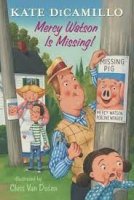A famous historian called the American Civil War our Iliad and our Western experience as our Odyssey. If, perhaps, "John Brown's Body" (1928) by Stephen Vincent Benet represents our Iliad, what is our Odyssey epic? It is John G. Neihardt's "Cycle Of The West" . Who? What?
The Encyclopedia Of Traditional Epics (1994) published by ABC-CLIO defines a literary "cycle" as "...a group of poetic and prose narratives, usually evolving from a number of sources, about a legendary hero or event..." From 1915 to 1941, Nebraska's poet laureate wrote five long poems "songs" spanning the history of the Great Plains from 1822 to 1890: "The Song Of Three Friends"(1919) chronologically comes first followed by "The Song Of Hugh Glass" (1915), "The Song Of Jed Smith" (1941), "The Song Of The Indian Wars" (1925), and ends with "The Song Of The Messiah" (1935). The first three poems or songs deal with the mountain man west, the fourth pertains to the westward migration and conflict with the Native Americans, and the "Messiah" song ends with the Ghost Dance and Wounded Knee of 1890. How long are they? Well, the "Three Friends" song has eight cantos and runs 126 pages.
Of the five, probably the best known are the first three especially the "Hugh Glass" and "Jed Smith" poems (titled Mountain Men). The legend of real mountain man Hugh Glass involves being mauled by a bear, abandoned by his companions, and surviving through self reliance and perseverance. In 1955, the South Dakota author, Frederick Manfred, expanded and retold the Hugh Glass story in the superb and best selling novel, Lord Grizzly. Here's a few lines from the chapter titled "The Crawl", ' "...His thirst became a rage. He gazed around, Seeking a spring; but all about was dry As strewn bones bleaching to a desert sky; Nor did a clawed hole, bought with needed strength, Return a grateful ooze. And when at length Hugh sucked the mud, he spat it in disgust. It had the acrid tang of broken trust," '
Most historians rank mountain man and explorer Jed Smith, the historical hero of the second song, in the company with Jim Bridger and Kit Carson as influential in opening up the West. Library collections should have Dale L. Morgan's Jedediah Smith And the Opening Of the West .
Unfortunately, because of the author's bestseller and critically acclaimed Black Elk Speaks (1932), his heroic "Cycle" creation has been overshadowed. Thus, the next time teachers are studying epics, doing a poetry unit or one is compiling a poetry bibliography, don't forget our "American Homer" or as Black Elk himself said of John G. Neihardt, ' " He is a word sender...After his words have passed, the memory of them shall stand long in the West like a flaming arrow." ' 384 pages.
Recommended by Robert L. Hicks, Arkansas City High School, Librarian, Kansas USA






